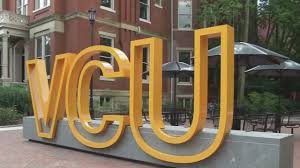Threat assessment bills propose fixes in how Virginia colleges respond to violence
by Virginia Mercury
Virginia’s colleges and universities may soon be permitted to obtain criminal histories and health records of people seen as posing a “significant” threat on campuses under legislation that recently passed both the House and Senate.
The legislation, which was carried by Sen. Steve Newman, R-Bedford, and Del. Amanda Batten, R-James City, was filed in response to the November shooting at the University of Virginia that left three football players dead.
“When we look back on it and say, ‘What could have been done better?’ I think this bill gets at how it is to be done better,” said Newman at a Jan. 23 hearing.
The bill will now go to Gov. Glenn Youngkin for his signature.
Macaulay Porter, a spokeswoman for the governor, did not answer a question about whether he would support the legislation.
According to data collected by the Violence Project, nine mass public shootings have occurred on college and university campuses since 1966. Those numbers include a mass shooting at Virginia Tech in Blacksburg in April 2007 that killed 33 people, including the shooter, and wounded 17. However, because the Violence Project defines a public mass shooting as a shooting in which four or more people, not including the shooter, are murdered, it does not include the University of Virginia case.
The 2007 Virginia Tech shooting led to lawmakers passing legislation that required colleges and universities to establish threat assessment teams to help prevent violence on campuses. Teams are made up of law enforcement officers, mental health professionals and student affairs and human resources representatives.
In 2013, the General Assembly began requiring all K-12 public school divisions to have teams as well.
Under this year’s proposed legislation, the threat assessment team would not only be given greater power to obtain records but would be required to notify campus and local law enforcement as well as the local commonwealth’s attorney of any threat.
Team members would also be required to complete at least eight hours of training with the state Department of Criminal Justice Services or a group it approves within 12 months of being appointed, and at least two hours of additional training every year thereafter.
According to a fiscal impact statement from the Virginia Department of Planning and Budget, it’s unclear whether schools would have to pay DCJS for training costs, although they would be responsible for covering the costs of using another training provider.
Another provision would require a school that has identified a student or employee as threat to notify any institution of higher education or place of employment to which the person transfers about the investigation and determination.
However, the Department of Planning and Budget said it was “not clear” whether that requirement “is allowable under federal law.”
The department cited the Family Educational Rights and Privacy Act, a federal law that protects the privacy of student educational records.
Threat assessment team members wouldn’t be permitted to disclose any criminal or health records provided to them.
Finally, this year’s bills would direct the state’s Secretary of Education and Secretary of Public Safety and Homeland Security to assemble a task force to determine best practices and model policies for threat assessment teams around the state. A report to the governor and General Assembly would be due Dec. 1.
Marisa Randazzo, executive director of threat management at Ontic Center of Excellence, a protective intelligence software company, said the proposed legislation would help accelerate information sharing, “which is critical to prevention,” underscore the importance of training and place “important” notification requirements on schools.
“I feel like this is another step in fine-tuning the capabilities for colleges and universities in Virginia and really honing some threat assessment procedures to help further protect the safety of college students, faculty, and staff and visitors to Virginia’s educational institutions,” Randazzo said.
(Editor’s Note: Virginia Mercury is part of States Newsroom, a network of news bureaus supported by grants and a coalition of donors as a 501c(3) public charity. Virginia Mercury maintains editorial independence. Contact Editor Sarah Vogelsong for questions: info@virginiamercury.com. Follow Virginia Mercury on Facebook and Twitter.)



